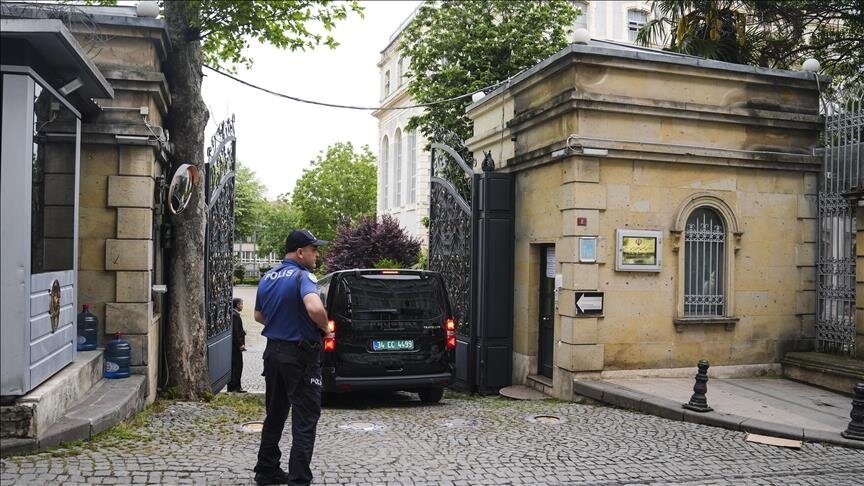MADRID – On Friday, May 16, Iran resumed nuclear talks with the UK, France and Germany in Istanbul, Turkey.
This senior diplomat meeting unfolds amid growing geopolitical tensions and uncertainty. This is because a potential fifth round of indirect talks between Tehran and Washington is expected in the coming days. This upcoming round represents a pivotal moment, allowing the parties to approach a new understanding of the future of the 2015 Joint Comprehensive Action Plan (JCPOA), a landmark nuclear agreement that once represented diplomatic progress and multilateral cooperation.
Talks with E3 are far from a mere procedural step ahead of the US-Iran dialogue. Rather, they reflect Tehran’s strategic and nuanced efforts to maintain open diplomatic channels with Europe and measure the evolving status of the European capital regarding the possibility of a revival of international sanctions.
This dual-track approach highlights Iran’s diplomatic pragmatism in a complex international environment. Meanwhile, the European Union sees these negotiations as an important opportunity to reclaim some of the diplomatic weight after years of relative marginalization on major global issues over many years, from the Ukrainian crisis and climate negotiations to the recent strategic restructuring that unfolds across Western Asia.
Europe faces the challenges of strategic autonomy
Since Donald Trump’s presidency and the unilateral withdrawal of the US from the JCPOA in 2018, the US has shown intentions to sideline Europe in many major geopolitical debates. Wake up the multilateral framework and the pursuit of bilateral initiatives, whether in Tehran, Moscow or Beijing, lack the traditional role of the EU as a central pillar of the postwar international order. In particular, the imposition of US secondary sanctions tested European resolve and independence, particularly with regard to its relationship with Iran.
Once considered the cornerstone of global stability, transatlantic relations have experienced unprecedented tensions in recent years. Disagreements regarding pandemic management, trade conflicts, diverse approaches to climate change, and contrasting strategies against rising forces such as Russia and China all contribute to the destruction of this once solid alliance. This distrust has been exposed at international forums such as the Security Conference in Munich. European leaders have openly criticised us for their indifference and even hostility, defending European interests and continental security architecture, for our perception of growing.
In this evolving geopolitical landscape, the European Union faces fundamental challenges. Can we pursue a more autonomous foreign policy to a greater degree? Therefore, negotiations with Iran are not merely about nuclear non-proliferation. They are a litmus test of Europe’s ability to act independently and assert its impact on the global stage.
In this tense and changing environment, Tehran is cautious, but has not denied European involvement. Interim Foreign Minister Abbas Aragchi has repeatedly been willing to continue consultations with E3, but has reiterated the provisions that allow for automatic re-submission of UN sanctions on Iran without a new Security Council vote, noting the activation of the “snapback” mechanism.
Araguchi warns that relying on snapbacks can have dire consequences. “A confrontational approach could lead to a global crisis of nuclear proliferation, and its impact would have a direct impact on Europe,” he said in a weekly operation released by France’s Le Point.
From Tehran’s perspective, causing a snapback would effectively end Europe’s participation in the nuclear deal and erase the vulnerable trust remaining between the parties.
Iran’s concerns reflect the risk of escalating laborious tensions over the years of negotiations and the broader uncertainty about the potential elucidation of diplomatic interests.
From this perspective, Tehran’s continued dialogue with E3 serves both as a strategic safeguard and a platform to inform the west of its red line.
Iran has questioned Europe’s response after the US withdrawal
From an Iranian perspective, much of the current deadlock comes from the limited response of the European capital following the US withdrawal from the JCPOA in 2018.
According to Tehran, many choose commercial interests on multilateral commitments and are complying with US sanctions rather than supporting the promise of trading.
“The promised economic benefits under the contract were not realized,” lamented Araguchi. “European companies have decided to comply with US sanctions rather than respecting their government’s commitment.”
Despite this disappointment, Iran has maintained careful contact with E3 diplomats since the end of last year, with its latest conference held in Geneva in February. Araghchi acknowledged the increasing isolation of European power in these consultations. “Unfortunately, Europeans are somewhat isolated due to their policies. I didn’t want that to happen, so I continued the dialogue.”
This ongoing interaction suggests that Iran is worthwhile for attracting Europe with key interlocutors, despite the US being a central player in a potential final contract.
An opportunity to redefine the role of Europe
With the careful but steady progress in negotiations between Iran and the US, the key question is whether Europe will limit itself to a supportive role or try to regain its central position in the diplomatic process. As Western media reported, European diplomats have not ruled out the possibility of invigorating snapback sanctions mechanisms if they fail to reach a substantial agreement with Iran by August. However, such a move risks further strengthening relationships and undermining the prospects of diplomatic resolution.
In this context, Istanbul’s lectures represent more than everyday negotiations. They are a test of Europe’s ability to project strategic autonomy and movement leadership. By actively involved in these discussions, E3 can influence the course of negotiations and direct them from forced tactics towards constructive diplomacy.
A return to the Istanbul negotiation table provides an opportunity to revise the course. Europe can play a constructive role if it is chosen and contribute to the gradually evacuation of nuclear tension. But to do so, we must assume that historical responsibility and act with an independent voice rooted in collective interest and respect for international law.

